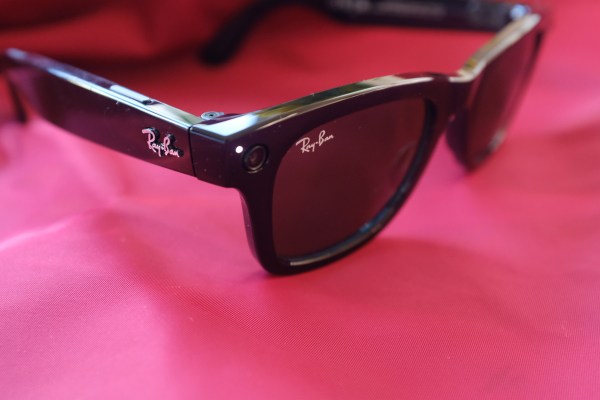Facebook recently announced its highly anticipated wearable sunglasses that can record video from a user’s perspective. Despite many of our legitimately squeamish reactions to this new product, one of Facebook’s decisions in this launch is likely to make it a success where Google Glass failed.
Taking a page from the business school curriculum, Facebook leveraged an effectual approach to its launch by partnering with Ray-Ban — a lesson all new product managers would do well to remember.
To best understand this, we need to first revisit Google Glass. It launched in 2011 as a prototype for only select users. Consistent with Google’s approach with beta launching at the time, these users paid $1,500 for their chance to play and test out what looked and felt like the future.
Despite being named one of Time Magazine’s best inventions of the year, Google Glass was riddled with problems and very much an unfinished product. Many have commented previously on how one of the key failures of Google Glass was that it was a classic example of putting out new technology without a clear use case. What were people to do with Google Glass?
Another important aspect of the Google Glass launch was that the design of the product was done in-house and marketing was carried out by a somewhat unintentional public relations campaign led by co-founder Sergey Brin, seen wearing them everywhere from Silicon Valley to Fashion Week. Effectively, Google was surfing on the wave of its success and offering up a new toy that seemed to be inevitable — but had no clear use.
Fast forward to earlier this month. Facebook launched new wearable sunglasses that are immediately and often compared to Google Glass. The question on everyone’s mind (other than whether the person next to me will be recording me without my permission) is whether Facebook’s attempt will tank like Google Glass. However, the decision to partner with top sunglass maker Ray-Ban to utilize one of the most recognized brands, the Wayfarer glasses, as the actual wearable is likely to make Facebook’s version a success.
While Facebook is more than a decade from its entrepreneurial beginnings, like many large technology companies, it necessarily must explore at the edges of innovation in order to prevent the product or service from making its platforms outdated. This means that many of the product launches that Facebook considers require them to navigate not risky nor unknown situations — but unknowable ones. What’s the difference?
The issue that Facebook and many technology futurists face is what many refer to as Knightian uncertainty. In 1921, Frank Knight published research that emphasized an important difference between risk and uncertainty. For the Big Four technology companies, the risk is the management of revenue to ensure that the market share between Facebook’s ad revenue growth next year continues to outpace Google’s.
Both companies have a track record of revenue growth, so we can utilize some historical data to make fairly decent predictions about the future. The key here is that tools of prediction have strength and thus are leveraged in decision-making.
Now comparing that situation to whether Facebook’s glass will be successful is an entirely different situation. What historical records can we draw from? Will demand be similar to Apple Watch in its first year? Or will it be more like Zune, Microsoft’s attempt at competing with the iPod? The point is that the demand for this product is unknowable, and there is very little value to prediction in unknowable situations — which we can also refer to as Knightian uncertainty.
So why will Facebook be more successful? Because while Facebook is no longer a startup, it leveraged a key entrepreneurial method to improve its chances. Namely, it leveraged an effectual approach to its launch of the Facebook glass by partnering with Ray-Ban.
While Google tried to invent the design of its new glasses — using its imagination about what people wanted — Facebook leveraged a design that already has some certainties around it. When a company or entrepreneur is launching a new product or service, working collaboratively is a key way to gain control of outcomes when predictive tools fail. Effectuation is an entrepreneurial method that encourages entrepreneurs to leverage aspects that are in or can be in their control.
You do this by starting with who you are, what you know and who you know. Instead of trying to predict what people will like in a pair of glasses and instead of learning itself how to market those glasses, Facebook chose to leverage the know-how of the largest player in the market.
Facebook moved forward through the unknowable by finding someone it knew to help it navigate a key uncertainty of its new product. For that reason alone, it has a better chance of success.
Ultimately, new consumer product innovations are incredibly uncertain (not risky), and most will fail. That means that even with Ray-Ban’s partnership, it can easily flop on so many other parameters, but like a good entrepreneur, Facebook has upped its chances by leveraging a key entrepreneurial approach to its product launch — improving its chances of success.
